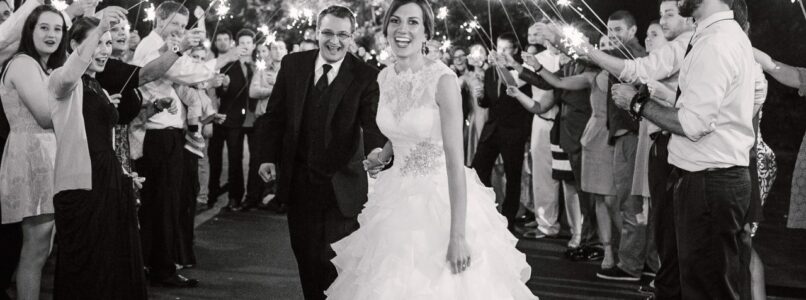“Jesus Christ, King of All Nations,
send me a prince who will make me
a princess worthy for you
my King and my Love”
This was my daily prayer for years. A dear friend had told me that Jesus loves the title, “King of All Nations” and that when I pray I should entreat Him under this name, especially when praying for a spouse.
I began reciting this little prayer composed by the yearnings of my heart throughout each day – in the morning, after I received Jesus in the Eucharist at Mass, and each time before I went to bed. I said this prayer when I was lonely, when I was in the presence of happy, young couples, and when I prayed for my vocation.
I was never more faithful to a prayer.
Mike and I met at a Catholic young adult group. I remember being immediately attracted to him. He had, and continues to have, such a peaceful and quiet humility about him. When we first talked, he looked me in the eyes, and I immediately felt my dignity and worth. Though he did not know me, he looked at me with such love.
It was exactly how I pictured Christ would look at me.
That was what first attracted me to him – that look of love for not just me, but for all those around him. As I got to know him more, my attraction for him grew. His profound inner peace, his gentle voice, his Catholic strength, and his bright blue eyes led me on the greatest adventure of love my heart has ever known.
Mike pursued my heart in a beautiful, intentional way. He made sure to become my friend before formally dating me. I wanted to date him immediately! Yet Mike took the time to get to know me. He listened to what I had to say, he drove six hours to meet my family, and he asked questions that allowed me to share my dreams, desires, and goals. All of our conversations were incredibly edifying and left me desiring more.
When he did ask if I would date him, my response was, “thank you.” And though we joke about it, I truly meant that response with all my heart. I was thankful that he wanted to date me. I was grateful that he desired to be my friend first – something that no other man had done before.
I was joyful that he took the time to pursue my heart as a gentleman of God.
I had never been more certain of anyone in my life. There is a holy, heavenly peace that consumes you when you are with the person God has chosen for you as a spouse. There was no doubt in my mind that I was with the right person. In fact, I have never been surer of any other reality in my life.
We dated for five months before Mike asked me to marry him. We were engaged for a year before we got married. Throughout those days leading up to our covenant of love, Mike continued to lead me, to pursue me, and to love me. He guided me towards Christ, and I knew this man was my way to heaven. Mike is my vocation. Mike is my prince.
I see the face of Christ most clearly in Mike.
I know that he is the prince that is making me a princess worthy for my King, for my ultimate Love – Jesus. And as our adventure of love continues to grow each day, especially in the form of our son, Peter, I am reminded of a truth: I am worthy of love. Every man and woman – is profoundly lovely and beautiful. Every man and woman is worthy of a love that will lead him or her to heaven. Please never settle for anything less than a life of love.
Jesus Christ, King of All Nations, thank you for my prince who is making me a princess worthy for you my King and my Love.
Claire Couche is a wife and mother who lives in Buffalo, New York. She graduated from Franciscan University of Steubenville where she studied history and theology. She later received her B.S.N. and worked as an oncology nurse on a bone marrow transplant unit before becoming a stay at home mother. Claire enjoys traveling, cooking, calligraphy, hiking, and attending the symphony. For more writings from Claire and her husband Michael, visit their website, www.findingphilothea.com.










